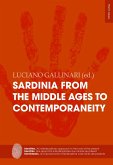Hidden in Plain Sight: Covert Criticism of the Medici in Renaissance Florence offers the first systematic study of an important and heretofore insufficiently-studied phenomenon in Renaissance Europe. Through a close examination of a wide variety of visual and textual materials, James O. Ward illuminates the means by which Florentine citizens-among them several of the most famous artists and writers of the time, such as Michelangelo, Machiavelli, and Vasari-managed, in an increasingly authoritarian political and cultural climate, to express their disaffection with the prevailing political and cultural status quo in relatively safe ways, while at the same time maintaining contact with those rulers whom they criticized, upon whom they often depended for their livelihoods. Ward's volume thus offers new and provocative interpretations of some of the most famous works of Italian Renaissance visual and textual culture-for example, Michelangelo's New Sacristy in Florence, Machiavelli's Prince, and Vasari's portrait of Lorenzo de' Medici-which have traditionally been viewed by scholars of the period as encomiastic celebrations of their patrons' power and prestige. The volume thus provides-besides its intimate view of power relations between some of Florence's most creative artists and writers and those they served-fresh perspectives on the important question of patron-artist relations during the period.
Written in a style which is not too technical, the book is an ideal resource for specialists in Italian history, art history, literature, rhetoric, theatre studies, and the history of Italian academies, as well as a stimulating narrative for the educated general reader interested in the history of Florence, and its often fraught relations with its leading family, the Medici.
Written in a style which is not too technical, the book is an ideal resource for specialists in Italian history, art history, literature, rhetoric, theatre studies, and the history of Italian academies, as well as a stimulating narrative for the educated general reader interested in the history of Florence, and its often fraught relations with its leading family, the Medici.
"This book will be of great interest to students in political theory and the history of political thought. The so-called lettura obliqua of Machiavelli's masterpiece has a long history; however, this is the first time that this reading has been proposed in a radically new way, taking into account how Machiavelli's friends would have read the Prince soon after its completion. The way Ward deals with the tradition of innuendo is something entirely new and will spark a lively debate among scholars of Machiavelli."-Paolo Carta, Professor of the History of Political Thought, The University of Trento









